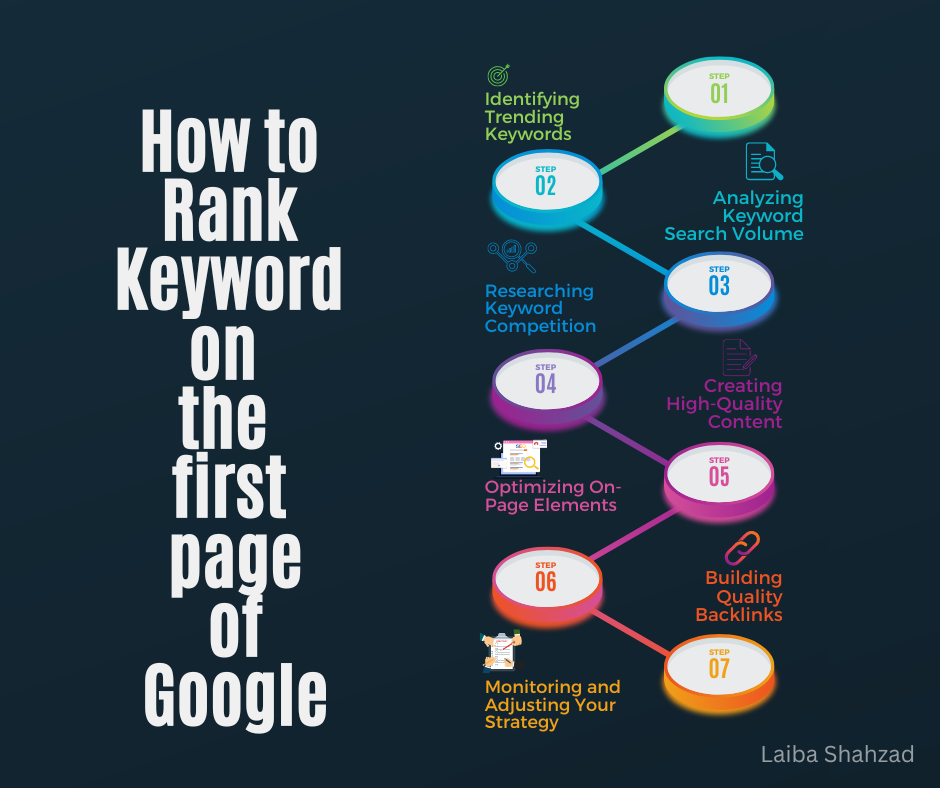The Importance of Ranking on the First Page of Google
When users search for information or products online, they tend to click on the search results displayed on the first page of Google. Studies have shown that websites on the first page receive the majority of organic clicks, while those on subsequent pages receive significantly fewer. Therefore, if you want to increase your website’s visibility and attract organic traffic, it is crucial to rank your targeted keywords on the first page of Google.
Understanding Google Trends

Google Trends is a powerful tool that provides insights into the popularity of search queries over time. It allows you to explore the latest trends, compare search terms, and analyze search volumes for different keywords. By utilizing Google Trends, you can identify keywords that are currently trending and have the potential to drive a significant amount of traffic to your website.
Identifying Trending Keywords
To rank a keyword effectively, it’s important to choose a keyword that is currently trending. Start by exploring Google Trends and look for keywords that have been consistently popular or are experiencing a sudden surge in search interest. These trending keywords are more likely to attract a larger audience and increase your chances of ranking higher on Google.
Analyzing Keyword Search Volume
Once you have identified potential trending keywords, it’s essential to analyze their search volume. Search volume refers to the number of times a keyword is searched for in a specific period. Several SEO tools can provide you with accurate search volume data for your chosen keywords. Select keywords with a decent search volume to ensure that there is enough demand for the content you plan to create.
Researching Keyword Competition
While search volume is important, it’s equally crucial to assess the competition for your chosen keywords. Highly competitive keywords are more challenging to rank for, especially if you are just starting with SEO. Evaluate the strength of your competitors by analyzing their domain authority, backlink profiles, and content quality. Aim for keywords with moderate competition, as they offer a better chance of ranking higher in search results.
Creating High-Quality Content
Content quality plays a vital role in SEO. To rank a keyword on Google, you need to create high-quality, informative, and engaging content that satisfies the search intent of your target audience. Conduct thorough research, provide valuable insights, and present your information in a well-structured format. Use relevant headings and subheadings to make your content scannable and easy to navigate.
Optimizing On-Page Elements
Optimizing your on-page elements is crucial for improving your keyword’s visibility. Make sure to include your target keyword in the page title, meta description, headings, and throughout the content. However, avoid keyword stuffing as it can have a negative impact on your rankings. Additionally, optimize your images by using descriptive alt tags and compressing their file sizes to enhance page loading speed.
Building Quality Backlinks
Backlinks remain a crucial ranking factor in Google’s algorithm. Acquiring high-quality backlinks from reputable websites within your industry can significantly improve your keyword rankings. Focus on building relationships with other website owners, guest posting on relevant blogs, and creating shareable content that naturally attracts backlinks. Quality backlinks not only drive traffic but also demonstrate your website’s authority and trustworthiness to search engines.
Monitoring and Adjusting Your Strategy
SEO is an ongoing process, and it’s essential to monitor the performance of your keywords and make adjustments as needed. Keep track of your keyword rankings, organic traffic, and user engagement metrics. If you notice that certain keywords are not performing well, consider refining your content, optimizing your on-page elements further, or exploring new keyword opportunities. Regularly analyzing and adapting your SEO strategy will help you maintain and improve your keyword rankings over time.
Conclusion
Ranking a keyword on the first page of Google requires a strategic and comprehensive approach. By following the steps outlined in this article, including identifying trending keywords, analyzing search volume and competition, creating high-quality content, optimizing on-page elements, building quality backlinks, and continuously monitoring your strategy, you can increase your chances of achieving a high ranking on Google. Remember, SEO is an ongoing process, so stay committed and adapt your strategy to stay ahead of the competition.
